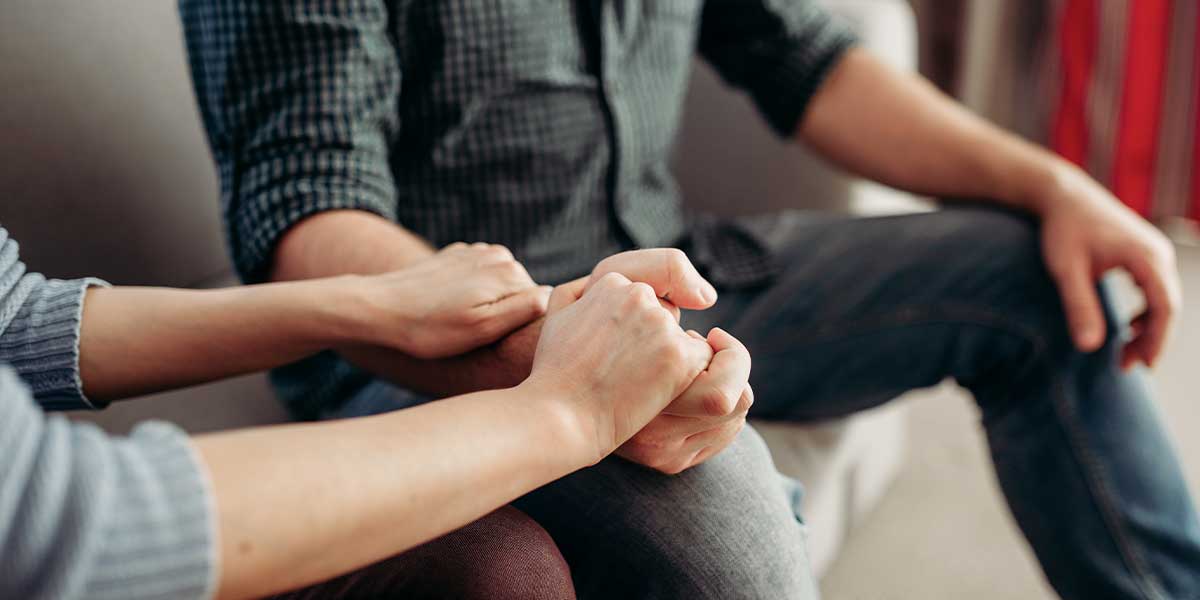Watching a loved one struggle through addiction can be one of the most difficult and isolating experiences of your life. Unlike most disorders, discussions surrounding addiction are rarely met with the sympathy and understanding garnered by similar potentially fatal conditions. Resources for families impacted by addiction are typically limited and often include sales pitches and promises of results in exchange for large sums of money. These quick fixes are also historically focused on how to best help the individual experiencing substance abuse and rarely provide help for family members desperately searching for a life raft in a sea of chaos and hurt.
Because no two families experience addiction the same way, no two forms of aid will be identical in support for loved ones of addicts. We’ve compiled a list of the three most effective resources in support of families impacted by addiction, they include:
- Mutual help groups
- Therapy
- Family programs
While each of these services provides a form of support, we’ve found that when used in conjunction families find the journey of addiction less lonely and more affirming. They also report greater access to resources, tools, and experience beyond what can be found online.
Mutual Help groups
The two most powerful words in the English language are “Me Too.” To recognize understanding and genuine empathy in another human can feel like a warm blanket in the bitter cold isolation of watching a loved one battle addiction. Support groups such as Alcoholics Anonymous and Narcotics Anonymous are typically for those hoping to recover or stay clean/sober from substances.
For families learning to cope with the pitfalls of loving someone addicted to drugs or alcohol, groups such as Ala-non and Nar-Anon provide similar support. The models of these meetings are similar to their parent group in community and non-judgment. Groups are open to the public and require no registration or fees. Anonymity is the strictest principle governing these gatherings; allowing those who join to share as freely or as little as they choose without fear of private struggles being shared beyond the room. The format of these groups varies but often leaves space for participants to speak openly in relation to their experience, triumphs, mistakes, tragedies, and hope for the future.
Therapy
This underutilized tool is responsible for saving countless lives as family members often forget to care for their own mental health while immersed in the world of someone else’s addiction. Employing a therapist who works with individuals and families can mean the difference between saving yourself and your family or allowing the sinking ship of addiction to drag you further into the depths of stress and consequence. Through therapy, individuals learn healthy coping mechanisms, practice boundary setting, and formulate plans of action or response in dealing with an addicted loved one.
Family Programs
Although this specific measure applies to families whose loved ones are currently attending a drug and alcohol rehabilitation program, it is very important to find a treatment center offering a family program. Once a loved one enters treatment and begins the process of recovery, many families are left hurt, confused, often grateful but typically exhausted and unsure of where to turn. While an individual in treatment is offered therapy and daily support groups, those at home remain fearful and wounded wondering what steps to take and what the future may hold.
Programs like Mississippi Drug and Alcohol Treatment Center are committed to healing both the individual and the family through evidence-based interventions and therapeutic processing. Our family weekends include education, family counseling, and future planning including relapse prevention plans, techniques for healthy communication, and resources for services needed post-treatment for both families and individuals. The goal of these programs is to support families and help strengthen the family unit as each member embarks on his or her own path to recovery from the wreckage of addiction.
Begin Healing
If you know or suspect someone you love is struggling with a substance use disorder you need not suffer in silence. Just like addiction or alcoholism, step one includes the admission that you are powerless and may require some help. While it may seem like weakness; accepting outside help is the first step to finding freedom from the weighted chains of your loved one’s addiction.
For more information about addiction recovery family programs and treatment with Mississippi Drug and Alcohol Treatment Center, click here or contact us 24/7 at 855-344-6120.
Additional Help and Resources
To find mutual help groups for you or family members in your area please use the following links:
For families of those addicted to alcohol or narcotics:
https://al-anon.org/al-anon-meetings/find-an-al-anon-meeting/
For Teens impacted by alcoholism:
https://al-anon.org/al-anon-meetings/find-an-alateen-meeting/
For Families of those addicted to narcotics:
https://www.nar-anon.org/find-a-meeting
To find a local therapist or counselor utilize the link below (you can also search by insurance accepted):

